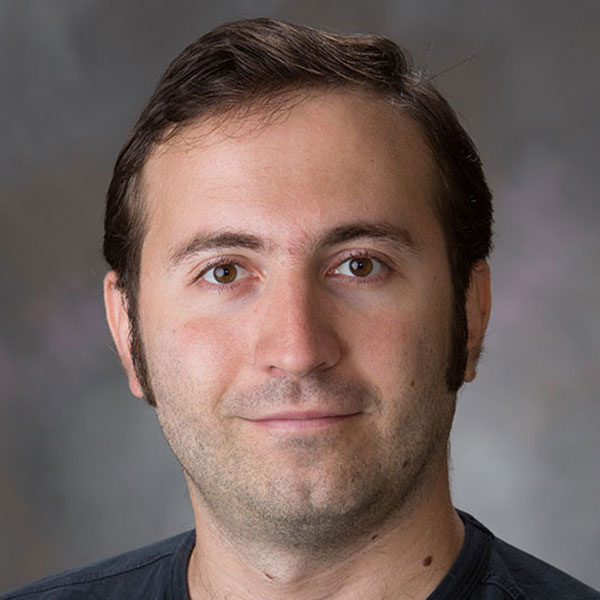Calendar Icon
Apr 27, 2017
Person Bust Icon
By Karl Vogel
![]() RSS
Submit a Story
RSS
Submit a Story
Working this summer at the U.S. Naval Research Laboratory (NRL) and being chosen to receive USRI's Young Scientist Award have created a "rare opportunity" for Christos Argyropoulos, assistant professor of electrical and computer engineering.
Argyropoulos has been chosen an Office of Naval Research (ONR) Fellow and will spend 10 weeks this summer at the NRL in Washington, D.C.
With this fellowship, Argyropoulos will be working with NRL researchers and other ONR fellows in developing new materials, especially metamaterials, which are one of Argyropoulos' areas of research at the University of Nebraska-Lincoln.
Metamaterials are artificially constructed materials that have some properties that don't exist in natural materials. Argyropoulos said the Navy is interested in using these new materials in applications such as sensors, detectors, photodetectors, optical communications systems, radar systems and imaging devices.
Argyropoulos said his work as an ONR Fellow will be on the theory of how these materials could be utilized. He said being chosen to work at the Naval Research Laboratory is quite an honor and could lead to bigger things for his research.
"It's rare that young professors have such an opportunity to find connections with other researchers and within the Department of Defense for grants and being included in other research," Argyropoulos said. "I'm expecting to collaborate with NRL researchers and other fellows and try to establish long-term relationships."
Those collaborations, Argyropoulos said, could further his theoretical work that could be applied to increasing the efficiency of solar cells or to creating computers that are powered by light or nanoscale lasers, ultrafast cellular phone networks or materials that could create a virtual cloak of invisibility against high-tech radar detection.
"Basically, I'm doing theory, but I'm an engineer so I always have in mind the applications," Argyropoulos said. "I don't like doing pure theory. I have in the back of my mind that I'm working on a device, and that eventually people are going to use it one day. These are problems we're trying to tackle, and working at NRL will give me the opportunity to expand those possibilities."
Argyropoulos has also recently received the Young Scientist Award from URSI (International Union of Radio Science) to attend their General Assembly in Montreal, Canada from August 19-26. This award is based on merit and given to a few young scientists around the world who are younger than 35. The Award consists of free registration and funds to offset living expenses while attending the conference.
Submit a Story
